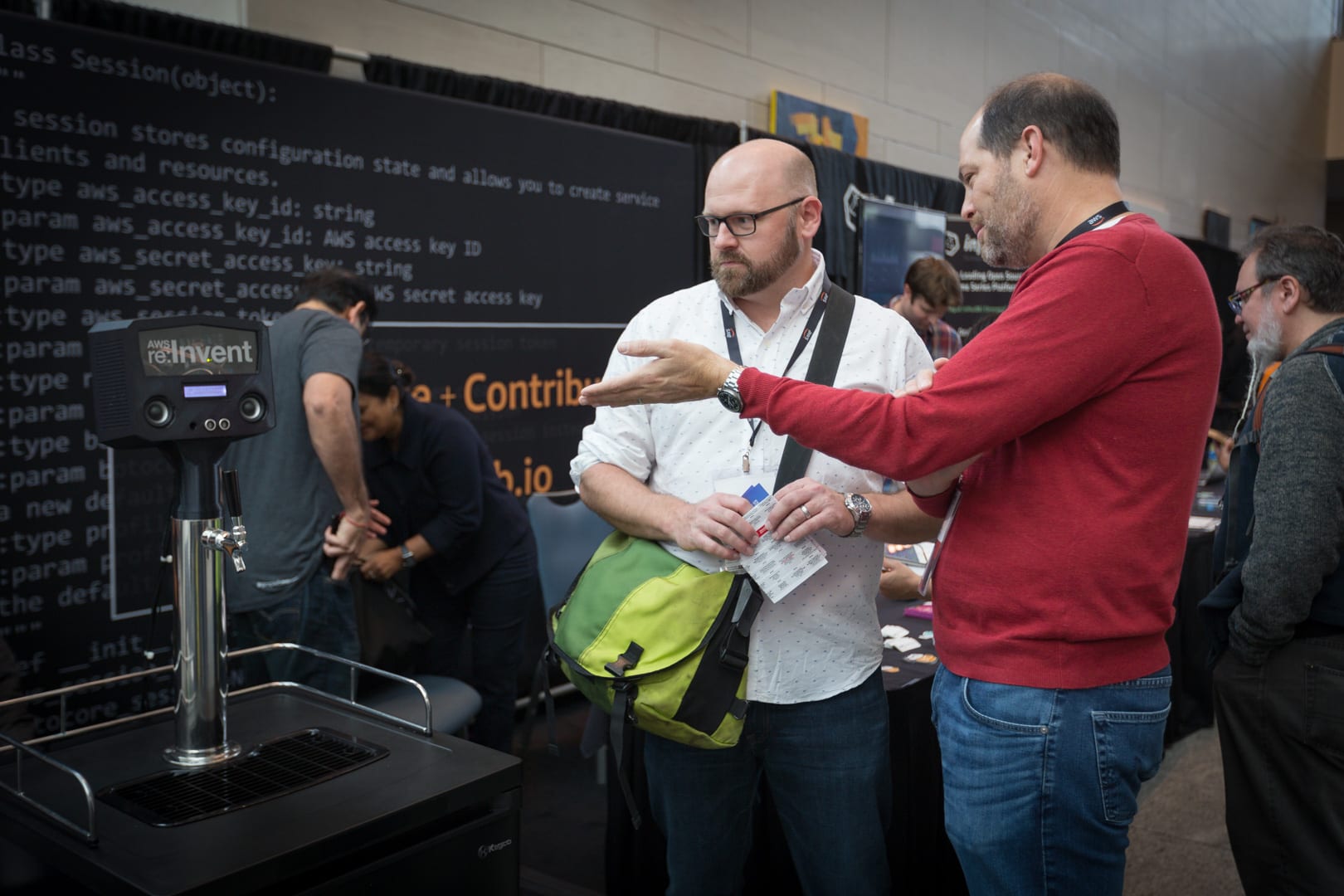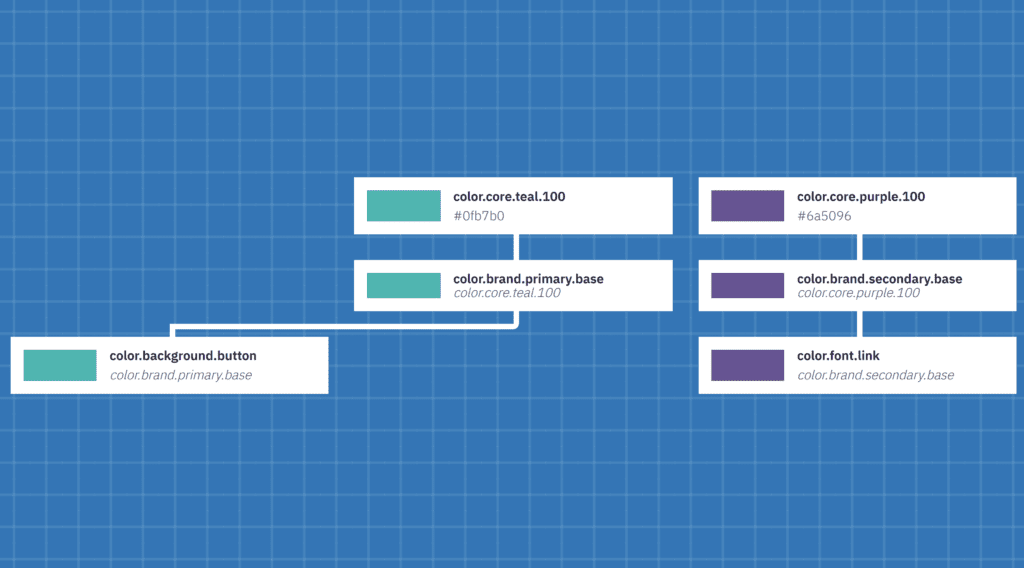
Back in October, Simple Thread attended one of the most underrated software conferences in the US; the quickly exploding All Things Open in Raleigh. This two and a half day event has over 20 tracks, more than 200 speakers and contains something for everyone.
After a decade behind the walled gardens of enterprise software vendors, your humble correspondent has now been to this conference three times in a row. Each time I has been enjoyable and packed with learning.
Here’s some of my (painfully belated) takeaways from my time at ATO2018.
👋Greetings from #ATO2018 ! Let us know if you are here so we can catch up in person! (@Brian_Bassett ) #AllThingsOpen #OpenSourceSoftware #OSS #sustainoss pic.twitter.com/K2fGl0Nx2H
— Simple Thread (@simple_thread) October 22, 2018
All Things Serverless
Serverless applications has been all the rage for for building applications in the cloud over the last few years. To explain the value of serverless, ZDNet had a great quote from a AWS team member a while back.
anything on an operating system level, is not something you should have to do in the serverless world.
So one can see why serverless is exciting in a world that is increasingly abstracted from the fundamental componentry. As expected, the discussion of serverless applications was a big theme during the conference among the back-end and DevOps tracks.
While it is fair to doubt whether serverless is the silver bullet many advocates tell us it is, at the very least it has become an increasingly popular choice for application architecture in the cloud. The proliferation of serverless tools flooding the market in the last 18 months has been daunting, but the opportunity cost for developers staying above the operating system level has deep and compelling value.
The efficiency, scalability and productivity is what excites @sanathkr_ for the future of serverless. #ATO2018 pic.twitter.com/8dXzKFhxxO
— Simple Thread (@simple_thread) October 23, 2018
At a time when (1) software developers are at a premium, (2) at least one-third of all developers have less than five years experience and (3) there is an acceleration of applications being cloud-based … serverless seems like a very helpful solution. As one software architect at one of the biggest entertainment companies in the world told me at an All Things Open mixer:
“We are defaulting to serverless applications.”
Wait what?!
“Nowadays when we choose the architecture of a brand new application, I need a compelling reason to not choose serverless.”
Now, not every business is a massive entertainment and news organization like his was, but at a minimum it demonstrates how big businesses are looking at cloud architectures.
What about two great tastes that taste great together? Burr Sutter had a fascinating presentation on Serverless Kubernetes, called Enter the Services Mesh. Definitely worth the watch.
Serverless Kubernetes? I got tech conference bingo!
Our takeaway: if you are not at least experimenting with this architecture yet, you better start soon. Don’t believe me? Look how packed this breakout session was for just one of the many serverless talks.
https://twitter.com/pamasaur/status/1054398662946758663
All Things Design Thinking
Design, UX and design thinking were big topics this year at ATO in the UX track. Design systems were brought up in a number of different talks, probably because the problem is becoming so commonplace in large and small applications alike.
One of the best high-level talks was presented was by Una Kravets in the keynotes where she addressed design thinking and followed it up in a breakout session on why design systems fail. The biggest takeaway? Keep end-users in mind; design should be a “defense of the user” and developers should be sure to incorporate others into your process in order to gain broader thinking and build support across the organization and solve a wider set of problems than maybe were intended at the outset.
https://twitter.com/MarjorieSample/status/1054371067920310272
Another compelling talk was how to integrate UX research into an agile environment. No easy task!
At an implementation level, Amazon’s Danny Banks gave one of my favorite presentations of the conference called Building Consistent Cross-Platform Interfaces and shared how Amazon uses a tool they have opened up on GitHub called the Style Dictionary. Style Dictionary helps Amazon build design consistency in their applications while saving their designers time as well as confusion among their users.

The biggest takeaway? More of a confirmation than anything else, but the more time advances the more we see the best software teams incorporating serious UX into their software engineering processes to create the best possible expressions of applications for their users.
With that in mind, we’re excited that this January we’ve brought aboard Spencer Hansen in an effort to build that discipline and practice for our clients.
All Things Keeping It Real
For all the great things about open source software there are problems with the community too as Henry Zhu explained in his keynote. Zhu is a core contributor and maintainer of the crucial BabelJS and explained how it can be extremely rewarding but also incredibly challenging.
While big businesses and software developers around the world use crucial software like Babel, many don’t contribute their fair share and even put undue expectations on a small overworked core contribution team. Much of these concepts are addressed in the groundbreaking work of Nadia Egbahl’s 2016 publication Roads and Bridges.
Maintainers like Zhu are often overworked, underpaid and grossly under-appreciated. Zhu talked openly about his love of his work as well as the existential struggles leaders wrestle with as members of an open source core community.
Perfect profile of a good community builder and open-source maintainer: pic.twitter.com/WVzf8N7rDz
— tierney cyren (@bitandbang) October 23, 2018
As Zhu noted in the quote above, open source software maintenance can reveal true character. Zhu dives deeper on the topic in the Hope In Source Podcast series, which he and Nadia Egbahl released late last year.
As I was writing this up, I checked any news on the Babel team and saw this.
So @AMPhtml (thanks @cramforce) just doubled their yearly donation to be a Base Support Sponsor ($2k/m) for @babeljs!!! Looking forward to more companies following suit in supporting the projects they depend on. Their post on 2018: https://t.co/esDKaRhDxFhttps://t.co/u1VRcvDtz8 pic.twitter.com/MKgPfa6mhM
— henry (@left_pad) January 14, 2019
While money isn’t the only challenge these teams face, it certainly doesn’t hurt. Money is appreciated among these small dedicated open source core teams, but they also need civility AND HELP!
Which leads me to my takeaway. Consider finding ways to support more of the open source software you and your teams and clients utilize.
All Things Conceptual Compression
Looking at outmoded technology or methods as non-consequential is the death of empathy. So much of what software developers do is stand on the shoulders of giants.
It is good to recognize that from time to time and we need to thank those that went before us.
A more verbose, idealistic correspondent would use this time to recite all the wonder, benefit and altruism from the annals of history of open source software, but since I’m already three months late on this blog post I will refrain from doing so this time.
Anyway … DHH talked at RailsConf about the notion of Conceptual Compression. This concept should be no surprise and dovetails well with the larger ideals of open source software development. Conceptual Compression is a step-function of efficiency; from what we saw at ATO, the notion seems to be gaining steam with thought leaders as evidenced in this presentation by Remy_D.
.@Remy_D with a shoutout to all his mentors #ATO2018 pic.twitter.com/3Vg88gj3Jr
— Don Watkins (@Don_Watkins) October 23, 2018
We fully expect in the years to come to see more folks follow Remy_D’s pattern in talks and presentations at open source conferences. Lets be sure to shoutout our mentors more.
All Things for All People
https://twitter.com/wcski/status/1054836592806948866
Sorry William, but that’s on you.
If I’ve learned anything in my three years attending, this conference is all about deepening knowledge as much as it is about cross-training.
As someone who jumped across DevOps, UX, Machine Learning, Community Building, Business and Case Study tracks just to name a few. This conference is entirely what you make of it. If one hears “Kubernetes” or “Time Series Databases” or “Design System” or “Open Source Program Office” too often, then a 20 track conference is begging you to mix it up.
With a conference this broad and deep, it would be equally easy to go throughout the conference and not hear the word Kubernetes enough to pay for one’s parking. Which by the way, was a paltry $12 dollars a day for a primo downtown underground lot! Kubernetes, Kubernetes, Kubernetes!
All Things … Future!
At the end of any conference, it is always time to look ahead. The always inspiring Danese Cooper challenged us to think about ourselves as future mentors and how can be preparing the table for developers and users in the future.
What does OS need right now? "To prepare for the next generation of OS users." –@DivaDanese #ATO2018 pic.twitter.com/MK1RnH7UM5
— DZone (@DZoneInc) October 22, 2018
Part of looking ahead is always looking forward to next year’s All Things Open. We’ve already circled it on our calendar and hope you will too. See you there next time!
Start together and end together with @toddlew @allthingsopen | Save the date for October 13-15, 2019 #AllThingsOpen @opensourceway pic.twitter.com/ZEvDz3h0id
— Jason Hibbets (@jhibbets) October 23, 2018
• Many of the presentations from the conference can be found on SlideShare.
• Keynote videos can be found on YouTube.
Loved the article? Hated it? Didn’t even read it?
We’d love to hear from you.


